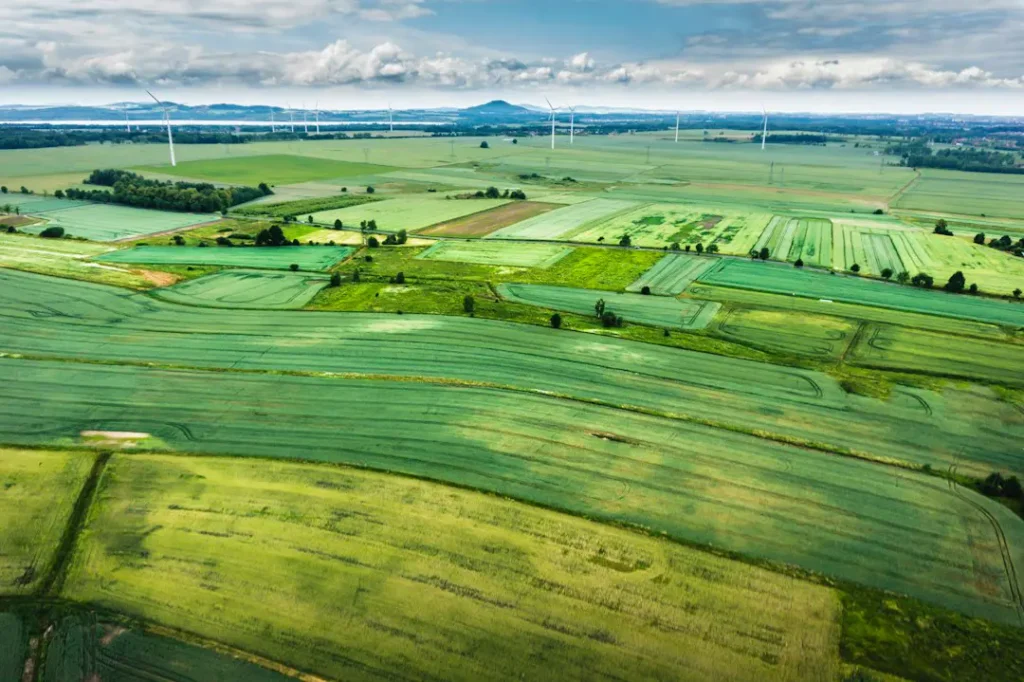Embarking on the journey of starting a commercial farm holds the promise of a rewarding career that taps into the growing demand for sustainable and locally sourced produce.
Whether you’re considering a leap into traditional crop farming or venturing into the burgeoning field of organic agriculture, understanding the various facets that contribute to a successful farming business is crucial. Below, we explore some essential tips and strategies to help you start a commercial farm.
Assessing Your Situation Before Starting a Commercial Farm

Before diving into the exciting world of commercial farming, it is crucial to take a step back and thoroughly evaluate your situation, needs, and available resources. This evaluation will help ensure that you have all the necessary elements in place to support your commercial farming operations successfully.
One of the most critical factors to assess is the amount of space you have at your disposal. Commercial farming typically requires a significant amount of land to cultivate crops or raise livestock. Adequate space is essential not only for the actual farming activities but also for any necessary buildings or structures.
This evaluation will help you determine if your existing land is sufficient or if you need to expand your property to accommodate your farming needs.
In addition to space, you must also consider your need for machinery, equipment, and various buildings. These items are vital for efficient farming operations and should be carefully assessed.
Machinery, such as tractors and harvesters, enables you to perform tasks efficiently and effectively. Equipment, such as irrigation systems or milking machines, can streamline processes and increase productivity.
Depending on the scale and nature of your operations, you might also need to build different buildings for commercial applications.
You can collaborate with a professional general contractor to build barns, processing rooms, storage buildings, and other structures tailored to your farm’s specific requirements.
Depending on where you are located, you can search for “commercial construction Saskatchewan,” for example, to find construction industry experts in your area.
Creating a Comprehensive Business Plan
Every successful venture begins with a solid business plan, and a commercial farm is no exception. It serves as a blueprint for your operation, detailing every aspect, from start-up costs and financing to growth strategies and revenue projections.
This document will be your roadmap and may be essential in securing loans or investors. Develop it with utmost diligence to reflect realistic goals and a clear path to achieving them.
Your business plan should also outline your operations in terms of suppliers and vendors needed. Forming relationships with reliable suppliers will be essential. A reliable diesel fuel supplier in Saskatchewan, for example, ensures that you have a steady fuel service to power generators, machinery, and heating systems necessary for your operation. The consistency in diesel fuel quality and delivery helps prevent interruptions that could derail productivity on the farm.
An operating model forms another corner of your business plan. From labour requirements to logistics and supply chain management, a well-laid-out plan ensures efficiency and resourcefulness in your operations. It also anticipates potential challenges and devises contingencies to mitigate any risks that might threaten your agricultural venture.
Finally, your financial plan must be thorough, encompassing funding sources, cash flow projections, and cost management strategies. Identifying the break-even point and understanding the financial metrics that will be used to measure the success of your farm will aid in decision-making and ensure financial discipline, which is crucial for any new business venture.
Integrating Sustainable Farming Practices for Long-term Success

Sustainability in farming is not just an ethical choice but a business strategy that can lead to reduced costs and a positive brand image. Employing sustainable practices such as crop rotation, conservation tillage, and precision agriculture can enhance soil health, reduce dependence on chemical inputs, and conserve water, which is beneficial both environmentally and economically.
Incorporating renewable energy sources such as solar or wind power can also lead to long-term cost savings and self-sufficiency. Additionally, sustainable farming often aligns with consumer trends, signaling to your customers that your business is environmentally conscious, which can boost your market appeal and potentially command a premium price for your produce.
Building a network with other sustainable farmers can provide valuable support and knowledge-sharing opportunities. This community can be a resource for best practices and innovative techniques that could be implemented on your own farm. Such networks often also collaborate to further sustainable initiatives within the industry.
Overall, the combination of comprehensive planning, diligent research, and innovation forms the bedrock of a successful commercial farm. By employing these strategies, farmers can tackle the challenges of modern agriculture and lay down the roots for a thriving and sustainable operation.






